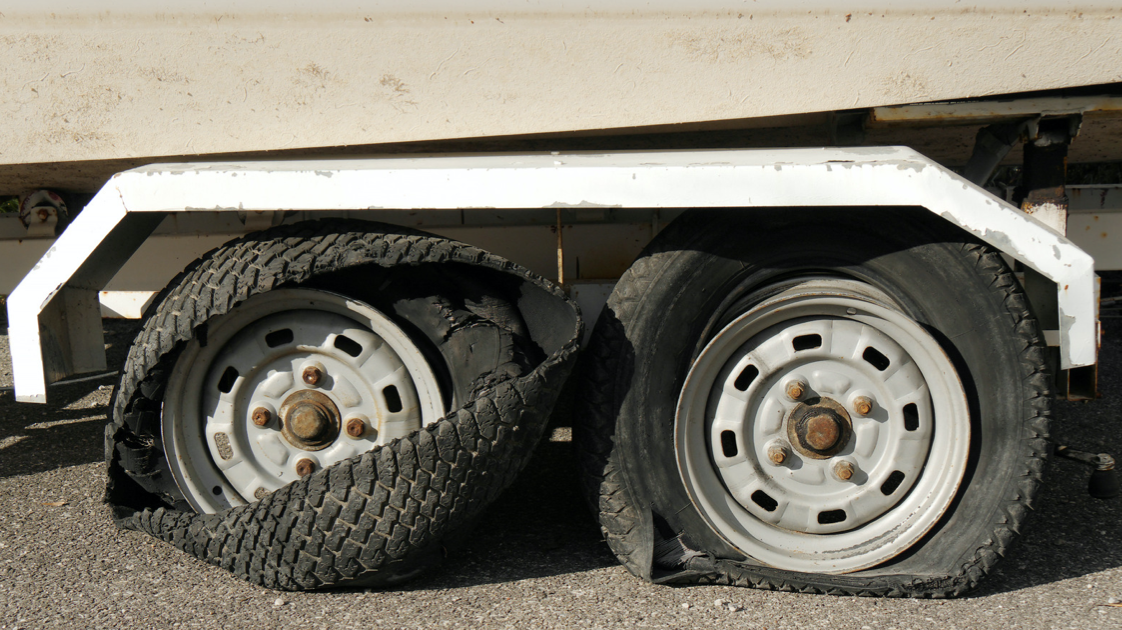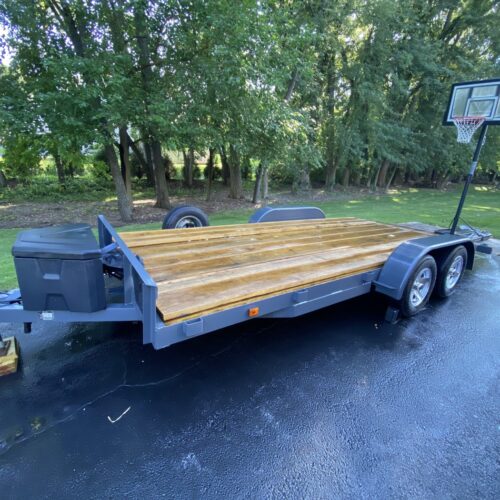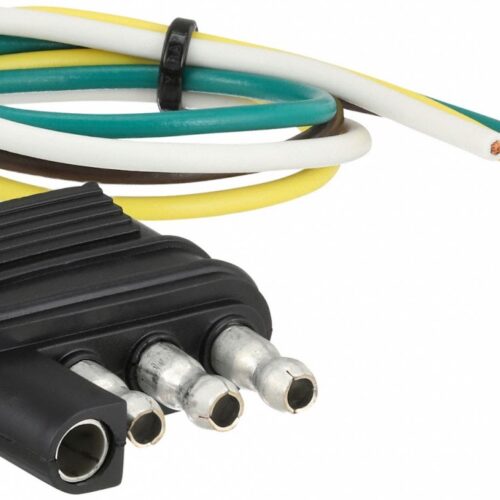Tires are one of the most critical components of any trailer, bearing the weight of the load and ensuring safe travels on the road. Knowing when to replace trailer tires is essential for maintaining safety and avoiding unexpected breakdowns. In this informative guide, we’ll explore the key indicators that it’s time to replace your trailer tires.
Knowing When to Replace Trailer Tires
1. Tread Depth:
Tread depth is crucial for maintaining traction and grip on the road, especially in wet or slippery conditions. As tires wear, their tread depth decreases, eventually reaching a point where they become unsafe. The general rule is to replace trailer tires when the tread depth reaches 2/32 of an inch. An easy way to check tread depth is by using a tread depth gauge or the penny test: insert a penny into the tread grooves, and if you can see the top of Lincoln’s head, it’s time to replace the tires.

2. Uneven Wear:
Uneven wear patterns on trailer tires can indicate alignment issues, improper inflation, or suspension problems. Inspect the tires regularly for signs of uneven wear, such as bald spots, cupping, or scalloping. If you notice uneven wear, have the trailer’s alignment and suspension checked by a professional and replace the tires if necessary.
3. Visible Damage:
Inspect the tires for any visible signs of damage, such as cuts, cracks, punctures, or bulges. These can weaken the tire’s structure and increase the risk of failure. If you find any damage, replace the tires immediately. Even small cuts or cracks can worsen over time, leading to tire blowouts or other safety hazards.
4. Age of the Tires:
Trailer tires degrade over time, even if they have sufficient tread depth and no visible damage. Exposure to sunlight, heat, and environmental factors can cause the rubber to deteriorate. As a general guideline, trailer tires should be replaced every 5 to 7 years, regardless of their condition. Check the tire sidewall for the manufacture date, which is indicated by a DOT code. The last four digits represent the week and year of manufacture (e.g., 2319 indicates the 23rd week of 2019).
5. Loss of Air Pressure:
Tires that lose air pressure frequently may have leaks or other issues. Check the tire pressure regularly and inspect for leaks by using a soapy water solution to identify bubbles. If leaks are found, repair or replace the tires as needed.
6. Change in Handling of Performance:
Pay attention to any changes in the trailer’s handling or performance, such as increased vibration, pulling to one side, or difficulty maintaining speed. These could be signs of tire issues, and prompt inspection and replacement may be necessary.
Regular maintenance and timely replacement of trailer tires are essential for safe and reliable travels. By paying attention to tread depth, wear patterns, visible damage, age, air pressure, and changes in performance, trailer owners can ensure that their tires are in optimal condition for the road ahead. Always prioritize safety by knowing when to replace trailer tires in order to prevent accidents and breakdowns.




